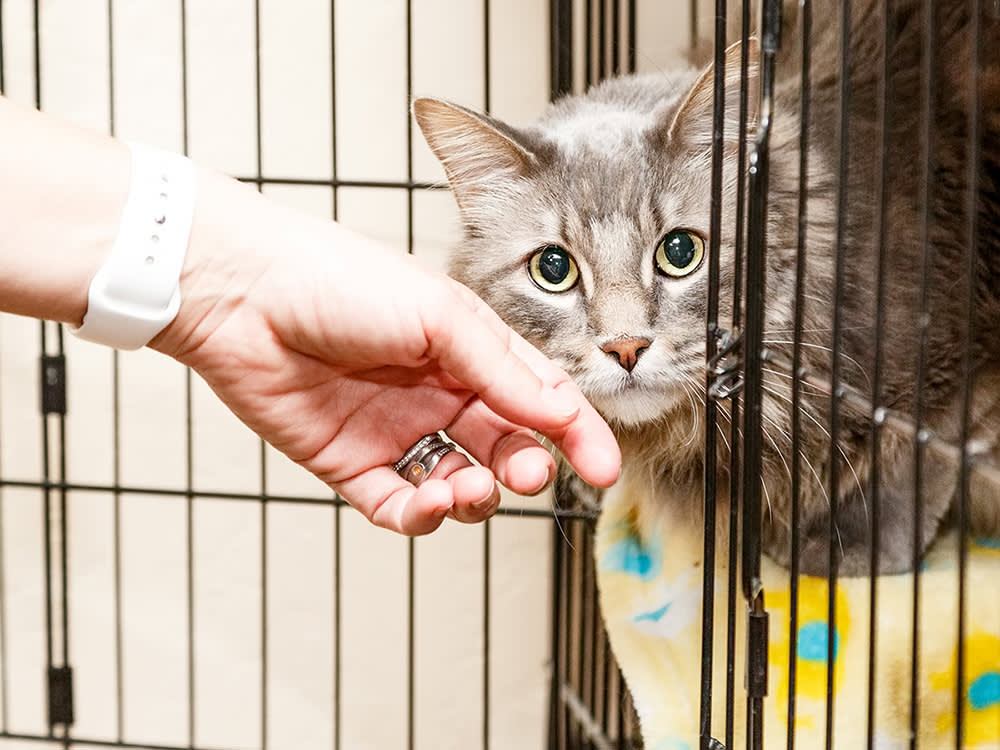Human-Animal Bond : 5 Proven Science Researches

The Science behind the human-animal bond is a remarkable phenomenon. Scientists have made fascinating discoveries about the human-animal interaction, shedding light on its profound impact on our lives.
Through their research, they’ve found that interactions with animals can have significant positive effects on our mental and physical well-being.
For instance, studies have shown that spending time with pets can reduce stress levels, lower blood pressure, and even boost our immune systems. The simple act of petting a dog or cat can release feel-good hormones like oxytocin and serotonin, leading to increased feelings of happiness and relaxation.
Furthermore, researchers have found that owning a pet can improve our social connections and overall quality of life. Pets provide companionship and a sense of purpose, which can be particularly beneficial for individuals experiencing loneliness or depression.
Moreover, studies have demonstrated the therapeutic benefits of animal-assisted interventions in various settings, such as hospitals, nursing homes, and schools. Interactions with therapy animals have been shown to alleviate symptoms of anxiety, depression, and PTSD, while also improving communication and social skills.
Overall, the scientific research on this science highlights the profound ways in which animals enrich our lives and contribute to our well-being. These discoveries underscore the importance of fostering positive relationships with animals and integrating them into various aspects of our daily lives.
This article aims to educate readers on the Science behind the Human-Animal bond.
History: What is the Science Behind the Human-Animal Bond?
Heart Health
Research has consistently shown that pet ownership is associated with a reduced risk of heart disease. A study published in the American Journal of Cardiology examined over 2,000 adults and found that dog owners had a significantly lower risk of death due to cardiovascular disease compared to non-dog owners.
The study suggested that the daily physical activity involved in walking and caring for a dog, as well as the companionship provided by the pet, may contribute to these heart-healthy benefits.
Additionally, the unconditional love and support offered by pets have been linked to lower levels of stress and anxiety, both of which are risk factors for heart disease.
Stress Reduction
The therapeutic effects of interactions with animals on stress reduction have been extensively documented in scientific literature. One notable study published in the journal Anthozoa’s investigated the impact of dog-friendly workplaces on employee stress levels.
The researchers found that employees who had access to dogs in the workplace reported lower levels of stress throughout the day compared to those who did not. The presence of dogs in the office environment created a more relaxed and positive atmosphere, leading to improved morale and productivity among employees.
These findings highlight the potential benefits of incorporating pet-friendly policies in work settings to promote employee well-being and reduce workplace stress.
Mental Health
Pets play a crucial role in supporting mental health, particularly among vulnerable populations such as children undergoing medical procedures.
A study published in the Journal of Consulting and Clinical Psychology examined the effects of therapy dogs on anxiety levels in pediatric patients undergoing medical treatment.
The researchers found that children who interacted with therapy dogs before and after their procedures experienced significant reductions in anxiety compared to those who did not.
The calming presence of the dogs helped to alleviate stress and promote feelings of comfort and security among the young patients, demonstrating the therapeutic value of animal-assisted interventions in healthcare settings.
Physical Activity
Pet ownership has been shown to encourage regular physical activity, which is essential for maintaining overall health and well-being. A study published in the Journal of Physical Activity and Health investigated the relationship between dog ownership and physical activity levels among adults.
The researchers found that dog owners were more likely to engage in regular exercise and meet recommended levels of physical activity compared to non-dog owners. The daily routine of walking and playing with a dog not only provides valuable exercise for pet owners but also fosters a sense of responsibility and companionship, leading to improved physical fitness and overall health outcomes.
Social Support
Pets offer valuable social support, particularly for older adults who may experience feelings of loneliness and isolation.
A study published in the Journal of Aging and Health examined the association between pet ownership and social well-being among elderly individuals. The researchers found that pet owners reported higher levels of social support and fewer doctor visits compared to non-pet owners.
The presence of a pet in the household provided companionship and emotional support for older adults, helping to mitigate feelings of loneliness and promote overall well-being.
These findings underscore the importance of pets in enhancing social connectedness and quality of life among older adults, highlighting the significant role that animals play in promoting healthy aging.
These studies collectively underscore the multifaceted benefits of the human-animal bond, emphasizing the importance of nurturing and cherishing our relationships with pets for both physical and emotional well-being.
From the dawn of civilization, humans have shared a complex relationship with animals. Initially, animals served as vital resources for survival, providing food, clothing, and labor.
However, over time, this relationship evolved beyond utilitarian purposes to encompass companionship and emotional support.
Across various cultures, animals have held symbolic significance, often revered as sacred beings or depicted as loyal companions in folklore and mythology.
Psychological Effects of the Science behind the human-animal bond
The human-animal interaction has been extensively studied for its positive psychological effects on individuals. Interacting with animals has been shown to reduce stress, anxiety, and loneliness while promoting feelings of happiness and well-being.
The unconditional love and non-judgmental nature of animals create a safe space for individuals to express themselves freely, fostering emotional resilience and self-confidence.
Biological Factors of the Science behind the human-animal bond
Behind the emotional interaction lies a complex interplay of neurochemical and hormonal responses within the human brain and body. When humans interact with animals, neurotransmitters such as oxytocin, serotonin, and dopamine are released, eliciting feelings of pleasure, trust, and attachment.
These biological mechanisms not only strengthen the bond between humans and animals but also contribute to overall mental and physical health.
Social Implications of the Science behind the human-animal bond
Beyond individual well-being, the human-animal interaction has broader social implications, fostering empathy, compassion, and cooperation within communities.
Pets, in particular, serve as social catalysts, facilitating interactions between individuals and reducing social barriers. Furthermore, shared experiences with animals promote a sense of belonging and interconnectedness, strengthening community bonds.
Benefits of the Science behind the human-animal bond for Animals
While much attention is given to the benefits for humans, the human-animal interaction also profoundly impacts the welfare of animals. Companion animals experience improved quality of life, receiving love, care, and enrichment from their human counterparts.
Additionally, animals engaged in therapeutic roles, such as therapy dogs or emotional support animals, find purpose and fulfillment in their work, enhancing their overall well-being.
Applications of the Science behind the human-animal bond in Therapy
One of the most profound applications of the human-animal bond is in therapy settings. Animal-assisted therapy, or pet therapy, harnesses the healing power of animals to improve physical, emotional, and cognitive functioning in individuals with various health conditions.
Service animals, trained to assist individuals with disabilities, provide invaluable support and independence, showcasing the incredible human-animal bond.
Challenges and Considerations of the Science behind the human-animal interaction
Ethical Considerations
One of the primary challenges in studying the human-animal bond involves ethical considerations surrounding the treatment of animals in research. Researchers must ensure that their studies adhere to strict ethical guidelines and prioritize the welfare of the animals involved.
This includes providing appropriate housing, care, and handling, as well as obtaining informed consent when working with human participants. Balancing the scientific objectives of the study with ethical responsibilities towards animals requires careful consideration and oversight to ensure the integrity and validity of the research.
Methodological Limitations
Another challenge in studying the human-animal bond lies in the complexity of measuring and quantifying the bond itself. Traditional research methods may struggle to capture the nuances of human-animal relationships, which are often subjective and multifaceted.
Researchers must develop innovative methodologies and tools that accurately assess the various dimensions of the bond, including emotional attachment, companionship, and mutual benefits.
Additionally, longitudinal studies are needed to examine the long-term effects of the human-animal bond on health and well-being, which present logistical and practical challenges in terms of study design and implementation.
Cultural and Societal Factors
Cultural and societal attitudes towards animals vary widely across different communities and regions, posing challenges for researchers studying the human-animal bond. Cultural beliefs, values, and practices regarding animals can influence the nature and dynamics of human-animal relationships, as well as perceptions of their roles and responsibilities. Researchers must consider the cultural context in which their studies are conducted and adapt their methodologies accordingly to ensure the relevance and validity of their findings across diverse populations.
Interdisciplinary Collaboration
Studying the human-animal science requires collaboration across multiple disciplines, including psychology, biology, sociology, and veterinary science.
Integrating insights from diverse fields can enrich our understanding of the science and its implications for human and animal well-being. However, interdisciplinary collaboration also presents challenges in terms of communication, coordination, and integration of findings across different disciplines.
Researchers must navigate disciplinary boundaries and foster collaborative relationships to address complex research questions and generate comprehensive insights into the human-animal bond.
Practical Applications and Policy Implications
Despite growing evidence of the benefits of the human-animal bond, translating research findings into practical applications and policy interventions remains a challenge.
Implementing animal-assisted interventions in healthcare, education, and other settings requires overcoming logistical, regulatory, and financial barriers.
Policymakers must also consider the ethical and welfare implications of integrating animals into various contexts and develop guidelines and regulations to ensure the safety and well-being of both humans and animals involved.
Additionally, raising awareness and promoting public understanding of the human-animal interaction can help foster a more compassionate and inclusive society that values and respects the bonds we share with our animal companions.
These challenges and considerations highlight the complexity and importance of studying this science, underscoring the need for interdisciplinary collaboration, ethical oversight, and cultural sensitivity in advancing our understanding of this unique and enduring relationship.
Despite its numerous benefits, the human-animal interaction is not without its challenges and ethical considerations. Issues such as animal welfare, responsible ownership, and the potential for dependency require careful consideration to ensure the well-being of both humans and animals involved.
Compatibility between individuals and animals, as well as the cultural and environmental context, also play crucial roles in fostering healthy and sustainable relationships.
Scientific Research
The scientific exploration of the human-animal science continues to expand, with researchers uncovering new insights into its mechanisms and effects. Studies across various disciplines, including psychology, neuroscience, and veterinary medicine, contribute to our understanding of the profound connection between humans and animals.
Ongoing research aims to further explore the therapeutic potential of the human-animal relationship and its implications for human and animal health.
Conclusion: What is the Science Behind the Human-Animal Bond?
In conclusion, the science behind the human-animal bond reveals a fascinating interplay of psychological, biological, and social factors. Looking back on the enduring connection between humans and animals, it’s truly heartwarming to see how it has shaped our lives throughout history.
From ancient civilizations to our modern world, the companionship and understanding we share with our furry friends have brought countless moments of joy and comfort.
Let’s continue to treasure and honor this special bond and relationship, recognizing its profound impact on our happiness and the world we live in.






















































